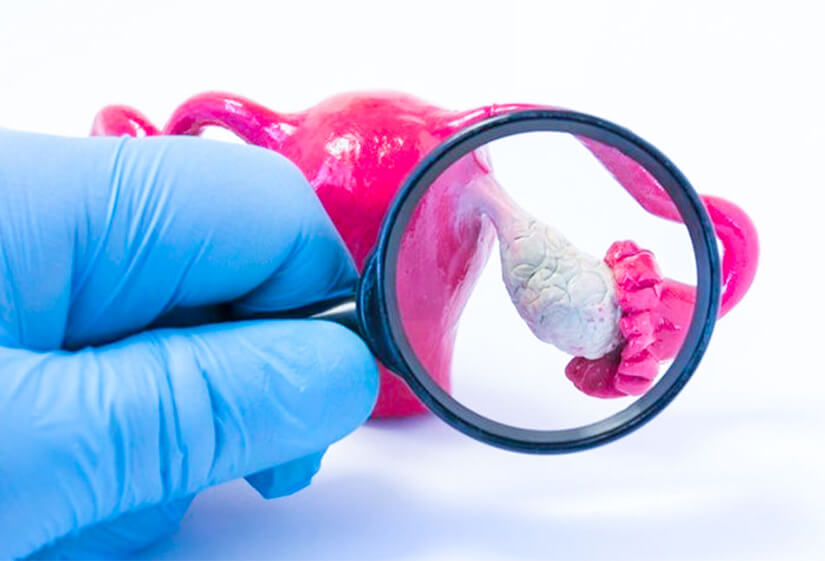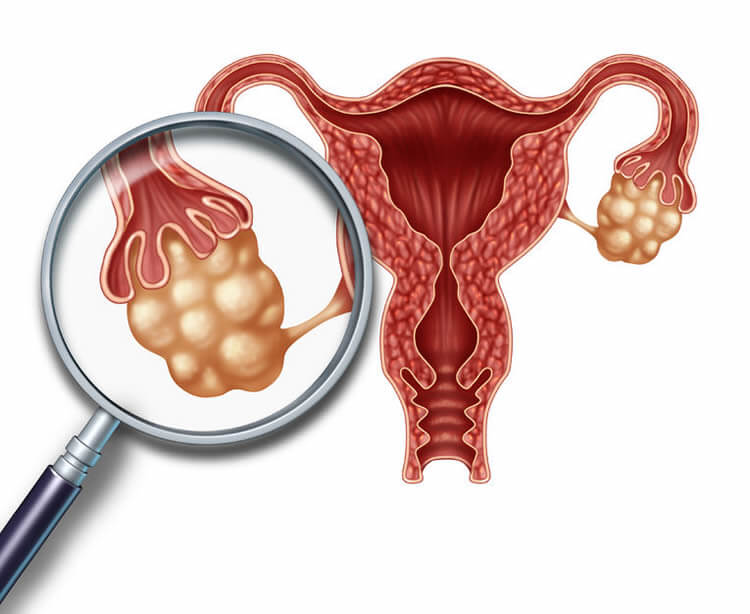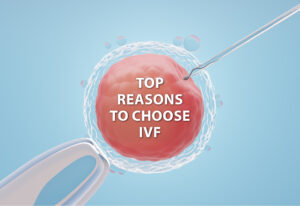PCOS
Polycystic Ovary Syndrome (PCOS)
Polycystic Ovary Syndrome (PCOS) is one of the most common hormonal disorders affecting women of reproductive age. It can have a significant impact on fertility, but with proper diagnosis and treatment, many women with PCOS can successfully conceive. At TheFertilife, we are committed to helping women understand PCOS and explore effective treatments to manage the condition and support fertility.


What is PCOS?
PCOS is a condition in which a woman’s ovaries produce an excessive amount of male hormones (androgens). This hormone imbalance can lead to the formation of small cysts (fluid-filled sacs) on the ovaries and disrupt the regular release of eggs. As a result, women with PCOS may experience irregular periods, difficulty ovulating, and other symptoms that can affect their reproductive health.
While PCOS can impact fertility, it is important to note that it does not make pregnancy impossible. Many women with PCOS go on to have healthy pregnancies with the right medical support.
Common Symptoms of PCOS
The symptoms of PCOS can vary from woman to woman. Common signs and symptoms include:
Irregular Menstrual Cycles: Women with PCOS may have infrequent, irregular, or absent periods due to the lack of ovulation.
Excess Androgen Levels: High levels of male hormones can lead to physical symptoms such as excessive facial or body hair (hirsutism), acne, and thinning hair.
Polycystic Ovaries: Enlarged ovaries with multiple small cysts may be detected through an ultrasound.
Weight Gain or Difficulty Losing Weight: Many women with PCOS experience weight gain or find it challenging to lose weight due to insulin resistance.
Infertility: Difficulty ovulating or irregular ovulation is one of the most common causes of infertility in women with PCOS.
Skin Changes: Darkening of the skin (especially around the neck, underarms, and groin) and the development of skin tags can also occur.
Causes and Risk Factors of PCOS
The exact cause of PCOS is not fully understood, but several factors may contribute to its development:
Hormonal Imbalance: High levels of androgens (male hormones) can prevent ovulation and lead to other symptoms of PCOS.
Insulin Resistance: Many women with PCOS have insulin resistance, which means their bodies do not respond properly to insulin. This can lead to higher insulin levels, which may increase androgen production and interfere with ovulation.
Genetics: PCOS tends to run in families, suggesting that genetic factors may play a role in its development.
Inflammation: Elevated levels of inflammation may also contribute to hormonal imbalances and insulin resistance in women with PCOS.
Impact of PCOS on Fertility
PCOS is one of the leading causes of infertility in women. The primary fertility issue in PCOS is irregular or absent ovulation, which makes it harder for women to get pregnant. However, with the right treatment, many women with PCOS can conceive.
How is PCOS Diagnosed?
PCOS is diagnosed based on a combination of factors, including:
Medical History: Your doctor will inquire about your menstrual cycles, any symptoms such as excess hair growth or acne, and family history of PCOS.
Physical Exam: A physical exam may reveal signs of excess hair or other physical symptoms related to high androgen levels.
Ultrasound: A pelvic ultrasound may show the presence of multiple small cysts on the ovaries.
Blood Tests: Hormone levels, including androgens and insulin, will be measured to assess any imbalances.
Managing PCOS and Improving Fertility
While there is no cure for PCOS, there are several treatment options available to help manage symptoms and improve fertility:
Lifestyle Changes: Maintaining a healthy weight, exercising regularly, and eating a balanced diet can help manage insulin resistance and reduce symptoms like weight gain and irregular periods.
Medications to Regulate Ovulation: Medications such as Clomid (clomiphene citrate) or Letrozole are commonly prescribed to stimulate ovulation and help women with PCOS conceive.
Metformin: This medication is often used to improve insulin sensitivity, which can help regulate menstrual cycles and improve ovulation.
Intrauterine Insemination (IUI): For women who are not responding to oral medications, IUI may be recommended as a fertility treatment option, particularly if there is male factor infertility as well.
In Vitro Fertilization (IVF): IVF may be an option for women with PCOS who are not successful with other fertility treatments. IVF can help ensure that fertilization occurs, even if ovulation is irregular.
Anti-Androgen Medications: Medications like spironolactone may be used to reduce excess hair growth and acne caused by high androgen levels.
Success Rates of Fertility Treatments for PCOS
The fertility treatment success rates for women with PCOS are generally very favorable. Many women with PCOS conceive with the help of medications that stimulate ovulation, and treatments like IUI and IVF are often successful. However, success rates can vary depending on factors such as age, the severity of PCOS, and whether there are additional fertility concerns.
Is PCOS Affecting Your Fertility?
If you have been diagnosed with PCOS or suspect you may have it, it’s important to consult with a fertility specialist who can assess your condition and create a personalized treatment plan. At TheFertilife, we offer comprehensive care to help you manage PCOS and improve your chances of conception.

Best Infertility Doctor in Gurgaon, Dr. Anshika Lekhi, a renowned IVF specialist, offers exceptional infertility treatments.
Pages
Contact Us
- 7505 Basement Bougainville Street, near Supermart 2, Sector 43, Gurugram, Haryana 122009
- 98735 24270
- info@thefertilife.com
Updates
Check New updates below.


Copyright ©2025 | All Rights Reserved.
